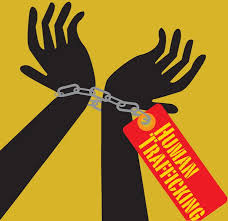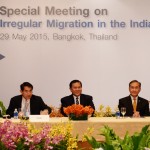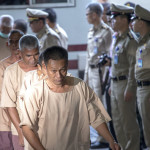
Thailand’s Minister of the Interior Anupong Paochinda detailed last week the broad array of actions to fight human trafficking taken under his ministry’s supervision of law enforcement and local government, while vowing that he would do all he could to ensure that Thailand meets international standards in responding to the problem of modern-day slavery.
While the anti-trafficking efforts that gain the most attention often involve border security agencies and the national police force, local governments and their divisions, from the provincial down to the village level, have important roles to play. Those local governments and their divisions fall under the supervision of the Ministry of the Interior, which has developed a seven-point road map to drive forward the national agenda of ending human trafficking.
Anupong said he had ordered officials to tackle human trafficking crimes and suppression strictly, continuously and efficiently in keeping with international standards to put an end to this type of criminal activity in the Kingdom. He expressed confidence his ministry’s work would help improve Thailand’s ranking in the next Trafficking in Persons report from the United States Department of State.
A former commander-in-chief of the Royal Thai Army, Anupong said local government units play key parts in preventing such crimes particularly through intelligence-gathering, strictly enforcing the laws against such cases, protecting damaged persons and witnesses, and promoting public participation.
Community-level teams and personnel provide additional channels for receiving complaints, and gathering intelligence and information, he said. They are often in the best position to know when something is amiss in their locale. Community-level teams were active in inspecting for aliens or human trafficking in their jurisdictions.
Special task forces, including provincial administrative officials and related agencies, have also been formed to crack down and arrest suspects. They are particularly effective in areas such as fishery, industrial factories and entertainment venues, which can be especially risky for inspectors and those passing on information, he said.
In 2015 so far, these special teams have inspected a total of 5,758 business establishments in 67 provinces. That has resulted in 16 cases under prosecution involving 160 victims.
The Interior Ministry and related agencies have also been implementing the massive registration of migrant workers from Myanmar, Laos and Cambodia, which began in 2014 and is continuing. This year, 1,050,068 migrants applied to renew their legal status to remain in Thailand for another year, Anupong said.
Over 80,000 migrant workers in the fishery industry have gone through that process this year. The ministry also takes a hand in assessing and determining the correct status for minorities and stateless persons living in the Kingdom.
For more information and updates about Thailand’s policies and actions against trafficking in persons and related issues, visit www.thaianti-humantraffickingaction.org
———————–
Thailand Focus September 14, 2015



